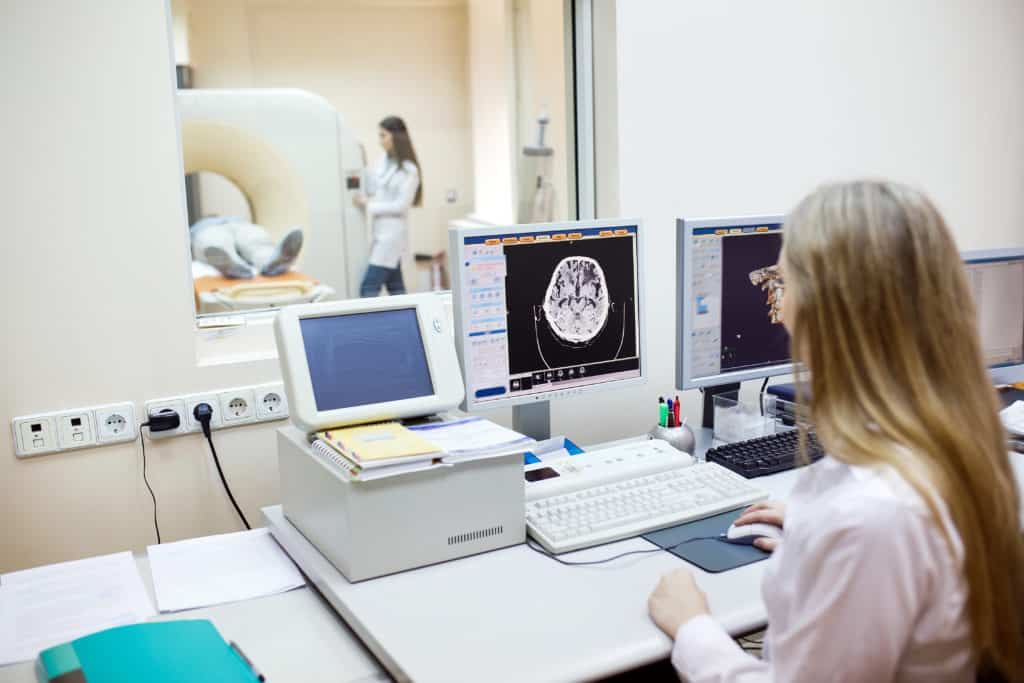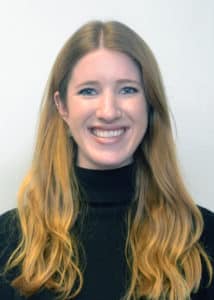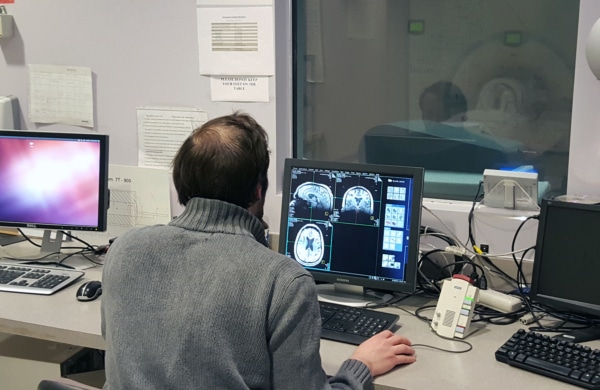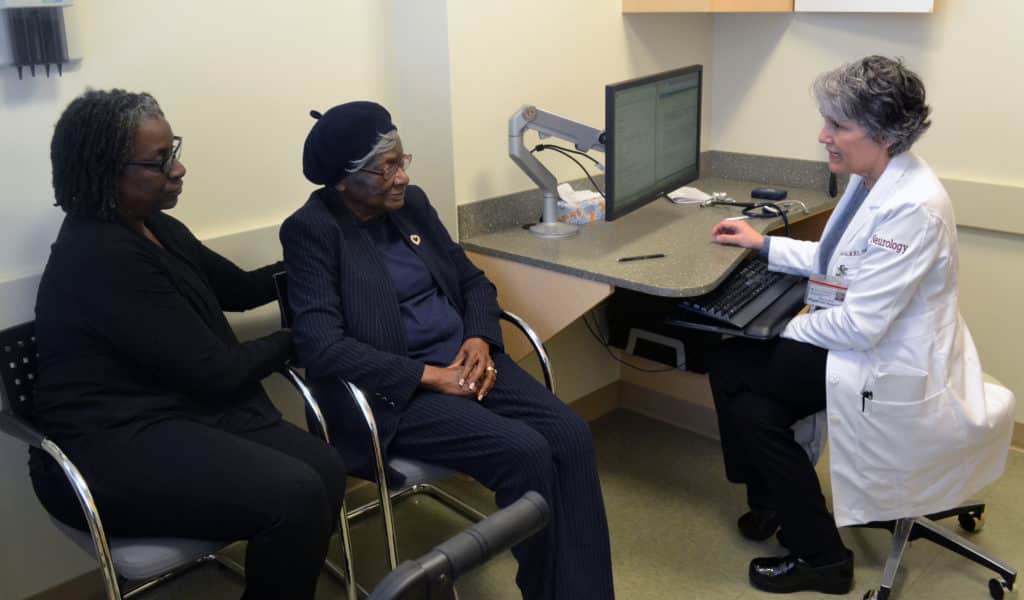By Sharnita Midgett
Carolyn L. Whitaker walks into the Perelman Center for Advanced Medicine for her visit. As a returning participant of the Aging Brain Cohort Study (ABC), she follows the now-familiar routine:
- check in with the research coordinator
- review medical history
- remove all metal
She prepares to spend the next few hours in or preparing to go in two MRI scanners, the 3 Tesla (3T) and the 7 Tesla (7T). During the scan, she waits to hear the voice of her coordinator, Melissa Kelley, letting her know how much time she has left in the scanner. For her, this has become her favorite part of the study.
“It allows me to just lay down somewhere from 45 minutes to an hour and just be quiet. It’s like a gift,” she said.
Magnetic resonance imaging (MRI) is a common procedure where a strong magnetic field and radio waves create a detailed image of organs and tissues in the body. There are two scanners that differ in the strength of their magnetic field — the 3T and 7T — which provide different types of imaging that tell researchers about brain structure and function. A goal of the ABC study is to obtain MRI scans in as many participants as possible every two years. Ms. Whitaker recently had her third MRI scan since joining the study in 2017.
Ms. Whitaker graduated from Bryn Mawr’s Graduate School of Social Work and Social Research with a master’s degree in clinical social work and a master’s in law and social policy. She worked as a social worker for most of her career. For a year, she experienced a period of not remembering and not being able to find items in her home like she used to. Her concern over her cognitive health pushed her to seek evaluation, and her interest in research started to form.
Ms. Whitaker originally developed an interest in participating in research due to her memory concerns and an article she saw on the Penn Memory Center and ABC Study in Milestones, a newspaper published by the Philadelphia Corporation for Aging (PCA). But as she progressed through the study, she felt a deepening commitment to research.
“My participation is as much about me as it is about the rest of the world,” said Ms. Whitaker.
Ms. Whitaker also expressed her interest in African American participation in research. Alzheimer’s disease is more prevalent among African-Americans than among their white counterparts, with estimates ranging up to 100 percent higher. However, African Americans are largely underrepresented in Alzheimer’s research.
Ms. Whitaker noted how many people from her community do not participate in research for several different reasons. She cited events in the past that have led to the distrust that some African Americans have of the research community, such as the Tuskegee Syphilis study.
“That lives among us in terms of people not wanting to do it,” she explained
However, Ms. Whitaker felt a commitment to research in order to help better understand the biology of Alzheimer’s disease and advance efforts to prevent it in the future.
“I’m willing to do what I can,” she said.
ABC participants are older adults with normal cognition, mild cognitive impairment, or mild to moderate Alzheimer’s disease dementia or other dementias. Participants and their study partners come in once a year to meet with Penn Memory Center staff for a visit that lasts 2 to 2.5 hours. This visit includes cognitive testing, neurological exams, blood samples and an interview.
Ms. Whitaker described cognitive testing as an experience that helps her understand her memory. During these tests, Ms. Whitaker is asked to recall stories, remember events, and complete tasks that test the functioning of the brain. Cognitive testing helps researchers evaluate the changes in the aging brain over time. By documenting these changes, researchers can better understand the difference between the aging brain with and without dementia.
“I enjoy the games and the ‘can you remember.’ I like to know how I’m doing,” said Ms. Whitaker.
The annual visits also allows Ms. Whitaker to interact with the ABC study coordinators who lead the visits, help manage the study, and become a familiar face for the participants.
Because of her passion, Ms. Whitaker encourages people in her life to participate in research or seek evaluation. She has even successfully encouraged some of her friends to come to the Penn Memory Center.
“I share my information with everybody,” she said.
By encouraging others to participate and her own participation, Ms. Whitaker is active in the progression of research. She hopes that her participation will help others to better understand the disease and lead to a better future.
“I am continually amazed by the dedication and altruism our participants and their study partners demonstrate,” said Melissa Kelley, clinical research coordinator. “I am especially grateful to have participants like Ms. Whitaker. Not only is she continually willing to donate her time to participate in the ABC study, but she goes above and beyond that by also serving as an advocate for our research.”
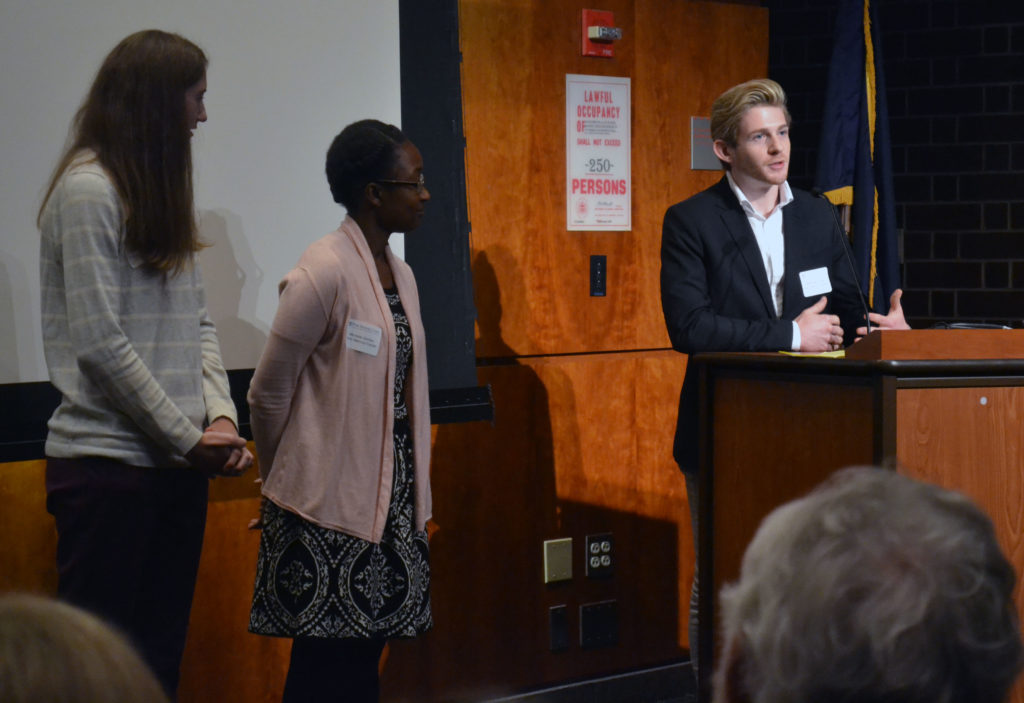
Matthew Ferrara, right, speaks to ABC study participants at the 2018 Research Partner Thank You Luncheon.
Contact
For more information about the Aging Brain Cohort study, contact Clinical Research Coordinator Matthew Ferrara at 215-615-3159 or mferra@pennmedicine.upenn.edu.
